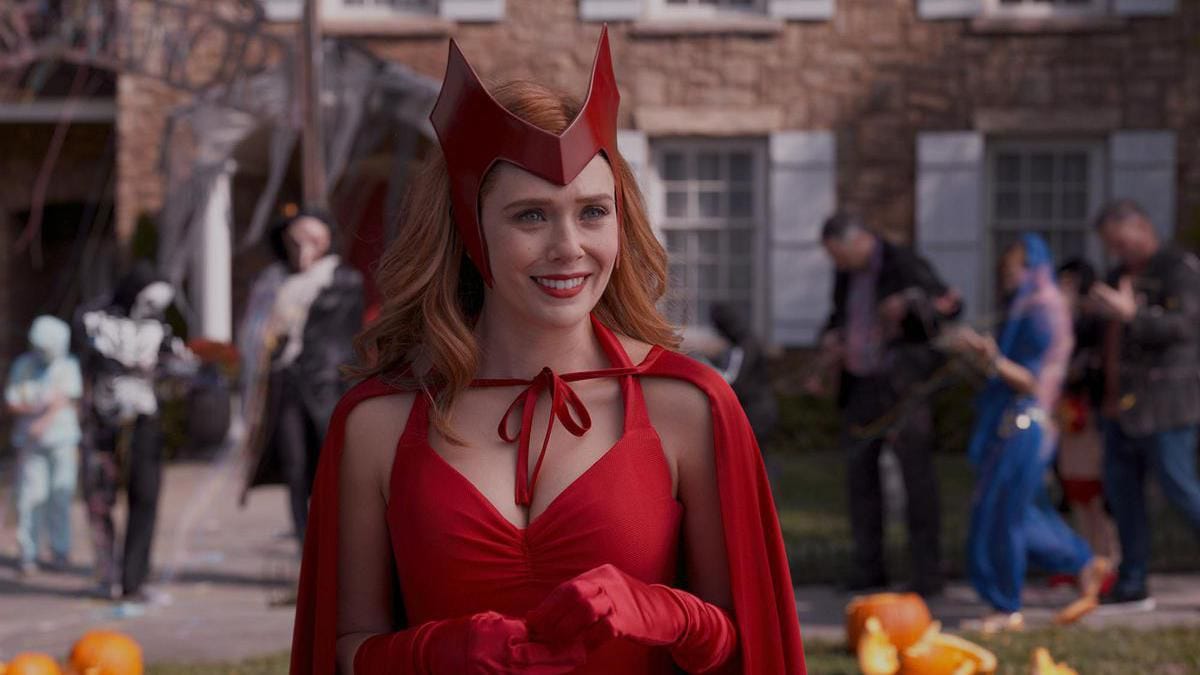Why Couldn't Wanda Have It All?
A look at the motherhood vs. career dilemma within "WandaVision"
Wanda is an incredibly powerful character and one would think that she would be an incredibly empowering character for this reason, but maybe her storyline is just the opposite.
Wanda created her Westview utopia accidentally. She did not mean to trap all of those people under her dome of delusion. She did not even mean to create the dome of delusion. It happened because she was overtaken by pain and despair. Emotion. Wanda was grieving so intensely that she physically could not control or contain her emotions, so she inadvertently created a false reality. After learning that this was how Westview was created, I could not help but wonder if this particular aspect of the plot was an attempt to prove the disappointingly widespread belief that women are far too emotional to hold any type of power. I recognize that it could be said that this scene was just meant to display how deeply sad and overtaken by grief Wanda was, but it seemed to too closely resemble this idea of women losing control of their emotions to be cast aside as a coincidence, especially because it is not a characterization the male characters in the Marvel Universe have been subject to. Sure, the Hulk loses control at times, but that is only when his blood pressure rises, or he feels anger, a very masculine emotion. Women are not supposed to be angry, but they are allowed to grieve. And by making Wanda’s grief lead to a release of her powers, causing suffering and the ultimate destruction of her false reality and family, the writers are telling us that Wanda cannot be both a superhero and a mother. Wanda cannot harness this type of power while simultaneously having a family.
Wanda was hurting people as she was trying to heal herself, living in this bubble of nonsense that is detached from the real world. The sheer thought that she could “have it all” is characterized as impossible just by existing within this nonsensical, false reality that is not supposed to exist itself. The message is conveyed that a woman with her kind of power and career cannot also have a family. This is an antiquated idea that has, clearly, not totally left society. Women who have careers are assumed to have given up their families for their careers, while men are expected to be able to have both. A father is very rarely asked who is taking care of his kids when he is not around, when a mother almost always is when she is seen without them. Even if it was not intentional, the writers are reinforcing this idea that women cannot, in fact, have it all. They cannot have the successful career and the family. A successful career, in Wanda’s case, is being a superhero, and the family part is pretty obvious. However, she had to sacrifice the superhero part in order to have a family, causing the people she trapped immense pain. And then at the end, when her world is destroyed, she sacrifices her family in order to be a good superhero and release the people of Westview from their pain. She couldn’t have both. She was too powerful, too dangerous. Just as people make jokes about a woman never being able to be President because she would “have a bad day and start a war,” the writers made Wanda have a rough year, and create this alternate reality in which the people within were suffering. Too powerful for her own good, and too emotional to be worthy of that power. And contrasted against the Vision, who is stoic, stable, smart, and sure, Wanda’s feelings and actions seem even more unnecessary.
“WandaVision” is incredibly entertaining. It is thrilling, funny, emotional, and it creates a sense of nostalgia through the varying time periods in which it moves. Nothing I have said is an attempt to discredit it. Wanda is one of the most powerful characters in the Marvel Universe, a show dedicated to a display of her powerfulness is brilliant. But with the idea that is conveyed through the overall plot, starting with her out of control emotions and ending with the sacrifice of her family because her power is so intense, I cannot help but recognize how that is an incredibly common foundation for various subtly sexist plots in mainstream culture.
In “Bewitched,” Samantha, while not totally surrendering her powers, limits herself and her usage of her powers in order to appease her mortal husband. In The Devil Wears Prada, Anne Hathaway’s character had to dedicate herself to her job, neglect her boyfriend, and ultimately choose between the two. This whole career vs. motherhood/wife plot is not new. It is, in fact, deeply rooted in almost every aspect of mainstream culture. So much so, that it is sometimes left unaddressed because we have become so accustomed to it. We are used to seeing the female characters battle whether they should be successful professionally or personally, when this is not a question that even passes through the minds of most men. There is not a career vs. fatherhood/husband dilemma imposed upon men by the expectations of society, not in real life and not in mainstream culture. I am not discounting the work that fathers do, especially single fathers, but they are not usually posed with the question of “How do you plan on balancing work and family life?” And so “WandaVision,” broken down to the bigger picture storyline, is just another form of entertainment in which the writers force the female character to choose between her career of being a superhero/good guy and her career of being a mother and wife.



Leila, I love how you are using pop culture references to explore how women are portrayed in our culture and challenging the unfair expectations of us. Very interesting.